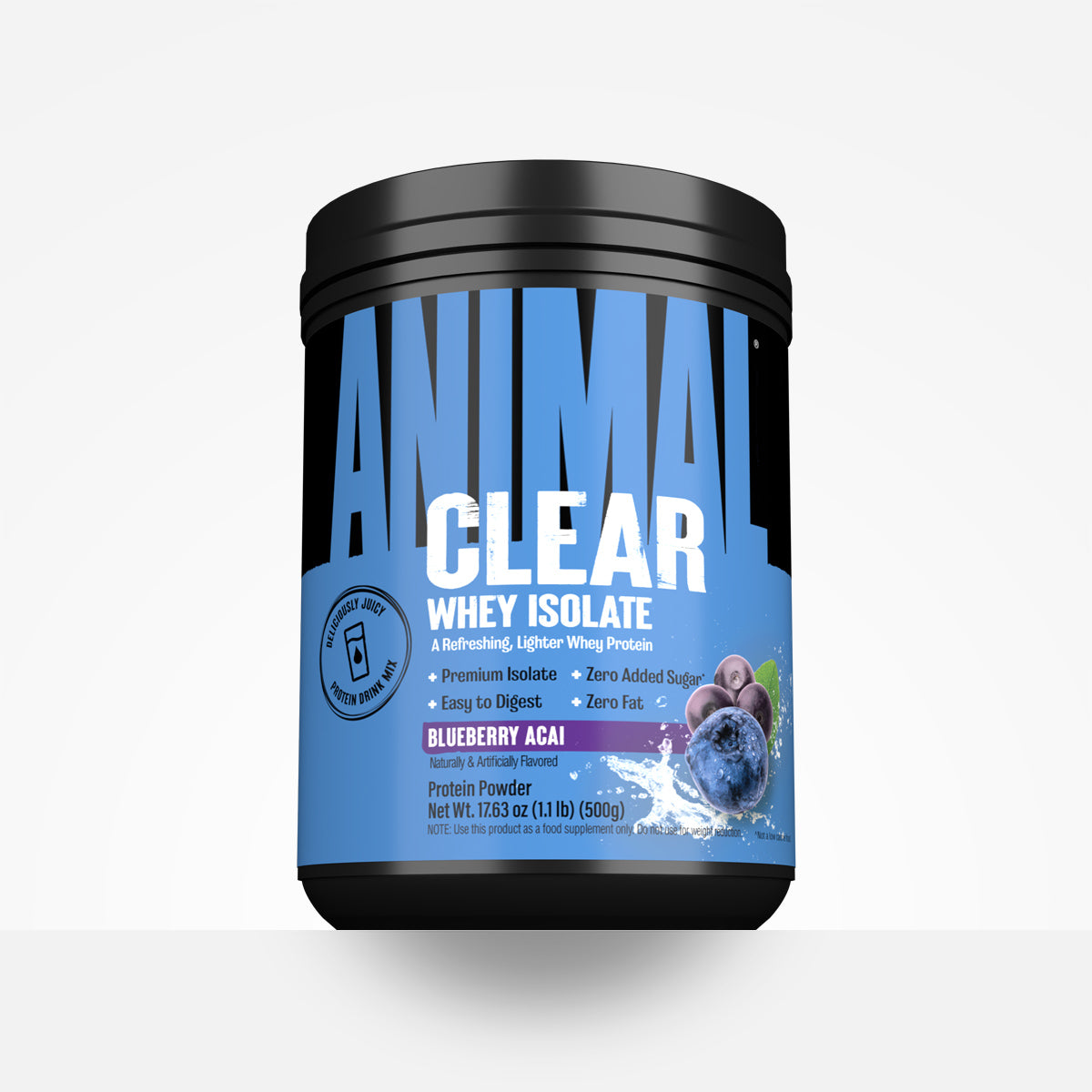Why You Should Gain Body Fat in the Off-season: Pounds for a Purpose
Contest prep is over, and you’re entering “improvement season.” I know some of you dread losing your chiseled abs, noticing clothes fit a little snugger each week, and watching the number on the bathroom scale climb higher, higher…and higher. After all, you spent countless days, weeks, months trying to achieve that stage-worthy look, so it might be difficult to relinquish the reins of prep and embrace all that comes with improvement season, most of all, our old friend body fat. Welcome back, pal!
Social media can give the impression that everyone is lean year-round. If you’re a competitor or in the fitness industry, you scroll through your feed and all you see are abs and glutes tighter than bark on a tree. But this is a fallacy. Sure, some outliers are genetically lean individuals, whether they are in prep or off-season. But for the vast majority, myself included, it takes weeks of prep to achieve a body-fat percentage appropriate for the stage. Once you achieve that stageworthy look, you can only maintain it for a short duration, but by no means is it optimal or healthy to even attempt to maintain it long term.
At some point in prep, you’ll most likely deal with at least some signs and symptoms of relative energy deficiency in sports (RED-S). What is RED-S? It’s exactly what it sounds like: low energy availability from a calorie deficit, low body fat, and high expenditure. Some signs and symptoms of RED-S include but are not limited to loss of menstrual cycle, decreased bone density due to low estrogen levels, changes in GI function, sensitivity to food, irritability, high hunger, and intense food focus. Nobody knows what “hangry” feels like until in the trenches of prep. Hormone derangement, low libido, and sleep disruption also occur. Your body is literally waking you up to say, “Hey dummy, I’m hungry.” These are the challenges that one might face as they reach low body-fat levels. It comes with the bodybuilding territory. My goal for this article is to help you understand why gaining body fat during improvement season is not only crucial for future preps but necessary for long-term health.
Escape the RED-S Zone for Epic Training
Do you know those workouts when you step into the gym, feel energized, without loading up on ungodly amounts of caffeine, feel as strong as Wonder Woman, and have pumps that seriously make you feel like you might burst out of your clothes like the Hulk? Well, let me tell you, such workouts aren’t going to happen if you’re experiencing all or some of the dieting adaptations I previously listed. Also, you won’t make substantial physique changes without a substantial post-show recovery period. To facilitate metabolic and hormonal recovery and to start experiencing skin-splitting epic workouts, you’ll need to eat a calorie surplus and regain body fat to escape the “RED-S Zone.”
I’m currently 17 weeks post-show, and for the last eight weeks or so, I have had the best workouts. For the first nine weeks post-show, I focused on allowing my body to recover. I allowed body fat to increase and removed all dieting adaptations that occurred during prep. Once my body-fat set point was established, those adaptations became a thing of the past, and just like that I escaped the “RED-S Zone.” My estrogen levels increased, promoting GH and IGF-1 levels for recovery, and my insulin sensitivity increased for carbohydrate uptake. Also, that post-ovulation progesterone surge returned, causing mood enhancement and improved sleep. I could finally move into a productive improvement season. If you’ve had a hard time with post-show weight gain, remember “Pounds for a Purpose.” Weight gain is necessary for recovery, performance, and future gains.
Who Doesn’t Love More Food?!
Hello, food my old friend, I’ve come to eat you again, Because visions of donuts softly creeping and never left when I was sleeping….
During prep, your food options are very limited, hunger creeps up as food intake decreases and activity increases. You may start dreaming of all the foods you want but can’t have. Your social media feed may turn into nothing but food porn. You may start watching the Food Network because, apparently, you enjoy torture. I know people that have gone as far as ordering hundreds of dollars worth of cookies for post-show. I would be lying if I said I don’t have my fair share of food focus during prep. What can I say? Ya’ girl likes to eat.
You think prep was hard? Post-show will be even harder, and attempting to stay at a low body fat will only be a recipe for disaster. Enter the binge restrict cycle. You’ve kicked off the heels, and it’s time for a celebratory meal, but instead of one meal, you eat everything you’ve been dreaming about for the past three months. The next morning, you wake up looking like the triple-stuffed Oreo you were pounding down last night. What do you do? You jump back on your very low-calorie prep diet and do fasted cardio. Maybe you follow this diet for a day or two, but hunger signaling is still high, and with no show in sight, what’s the harm of having a slice of pizza? Or a whole pizza? … and so the cycle continues. Increasing your base plan calories is crucial to avoid this binge restrict pattern.
I’m a firm believer that you can enjoy and experiment with different food during improvement season. You don’t have to be a slave to the boring ol’ chicken and rice day after day. I mean, chicken and rice is delicious, but how about shaking it up and making macro-matched chicken pad Thai instead? Or perhaps a BBQ chicken pizza, spaghetti, burgers…really anything your heart or stomach desires, within reason of course. Learning how to macro match meals allows a mental break from the rigid structure of prep, while still nailing your goals. Macro matching also takes away the food focus that some of us are all too familiar with. Since calories are in a surplus, you have a ton of proteins, fat, and carbs to work and get creative with.
Don’t Sacrifice Long-Term Health
As you fixate on improving your physique and reaching new goals, you shouldn’t sacrifice future losses for present gains. A health practitioner once told me, “Bodybuilding isn’t necessarily who has the best physique, it’s who can stay the healthiest for the longest.” You sacrifice so much in this sport, but your long-term health should not be one of those sacrifices. Allowing your body to recover and reach homeostasis is necessary for long-term health.
Some of you might let out a sigh of relief when you miss a period or two, but staying in an amenorrheic state for months on end will only be detrimental to your health. Having regular ovulatory cycles is a sign that important parts of your body are working normally. This cycle provides those all-too-important hormones that keep your body functioning optimally.
- Bone Health- Estrogen plays a huge role in bone health. The major physiological effects of estrogen are to protect against bone resorption and to promote bone growth.
- Heart Health- Estradiol produced by the ovaries protects the heart in multiple ways: it reduces free radicals, promotes blood clotting, keeps blood pressure low, and helps tissue throughout the body stay supple and flexible, and that includes your blood vessels.
- Brain Health- Receptors for estrogen are found in cells throughout your brain. Estrogen has been known not only to help brain development and behavior but also to play a nourishing and protective role in the central nervous system.
These are just a few examples of how a regular ovulatory cycle impacts your overall health. As I previously stated, hormone derangement is common among female competitors. You can manage this the best you can throughout prep, but there will be a level of sacrifice. This is why a recovery period post-show is so vitally important. The longer you stay in the “RED-S Zone,” the harder it will be to recover year after year.
Set the Stage for Future Preps
By now I’ve probably scared some of you out of wanting to compete, lol. But you can compete and reach your highest physique level without compromising long-term health. An improvement season will only set the stage for future preps and make you a better athlete. You can’t expect to keep your body in the “RED-S Zone” and still expect to make progress. You might do fine for a few years, but the health consequences will catch up to you. It’s not a question of if, but when.
Mental Break- The mental aspect of competing can be just as hard (or harder) as the physical aspect. Taking some time away from the stage and not hyper-focusing on everything that comes with prep is a nice mental reprieve. Taking this time off will make you feel mentally fresh and ignite new motivation.
Physique Improvements- Nobody wants to step on stage without some kind of improvement to their physique. Taking the time to build and solidify muscle gain will pay off when you strip off the body fat and reveal that hard-earned muscle.
Health Markers- Hopefully by the end of your improvement season, you’ve reached that body-fat sweet spot that allowed your body to fully recover. Your body will be more responsive to changes once you dive into prep.
What To Do?
When does a good off-season start?
A productive off-season doesn’t start as soon as you step offstage. Your body will want to partition extra calories into body fat since it’s fighting to return to homeostasis. So don’t be afraid to welcome body fat back. Now, this doesn’t give you the go-ahead to do a dirty bulk. Just as you controlled your fat-loss rate during prep, you should control for a fat gain during improvement season. Since individual responses to a calorie surplus vary, the rate of gain and amount of gain also varies. I reached my body fat “sweet spot” around the nine-week mark. This is when I started to feel my best.
How do you know you’re at a productive off-season point?
Once you’ve removed all dieting adaptations, does your libido return? Are you still hyper food-focused? Are you sleeping through the night? What are your lab markers? Has normal menses returned? If all of these have normalized, you’re probably in a spot to start a productive off-season.
How do you get there?
- Increase Food: you have to eat to grow!
- Increase Body Weight: if you want new and improved muscle tissue, you’ll have to embrace some body-fat gain. This is OK and completely normal.
- Lower Cardio: hammering away on the cardio machine is only counterproductive to muscle-building goals. It’s OK to keep some cardio for heart-health purposes.
- Take Stress and Hormone Support: ANIMAL Alpha F is the supplement any female athlete needs. This all-in-one pack is specifically geared towards women to support hormone balance, mood and stress support, as well as complexion, hair, and nail support. Alpha F is recovery support from the inside out.


















